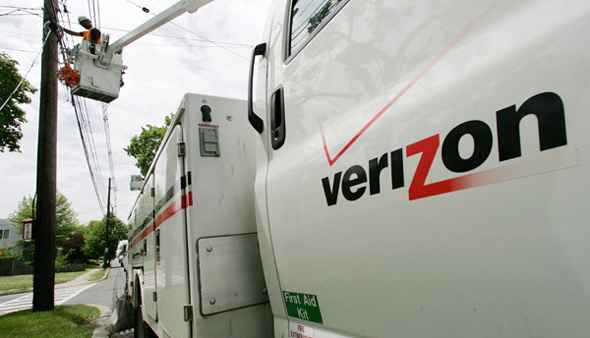Verizon Communications is drawing the ire of New York City for not following through on a promise to provide FiOS service to all five boroughs.
In 2008, Verizon Communications signed a closed-door agreement with then-Mayor Michael Bloomberg to outfit the big apple with the bundled Internet, phone and TV package by June 2014.
But apparently the company left a loophole in the deal that allowed them to pay a few small fines if they didn’t hold up their end of the bargain. The fine print in the agreement also said Verizon could “pass” many homes instead of actually serving them, according to a report from NYC.
In March of 2014, Verizon claimed that it could not deliver on the service because landlords were blocking access to buildings, but some landlords dismissed the carrier’s claims.
“They never came back to fix the holes that were drilled, fix the boxes they installed and put molding on their respective wires,” Hamdi Nezaj, who owns buildings in the Bronx said back in 2014.
The June 30 deadline only covered the main trunks of the system that run through city streets, but the agreement also said that once fiber was laid in an area, if a household requests FiOS service, Verizon would have to deliver within six months.
The audit shows repeated instances where Verizon refused to supply information about their service.
For example: “Verizon did not provide their route to the households passed numbers and would not allow access to their systems to determine whether 100% of households recorded in their system were passed.”
Another example explains, “Verizon did not provide us with their DirecTV contract when requested on Nov. 19, 2014. This was requested to determine if there is or was a contractual obligation to market DirecTV to prospective FiOS customers where buildings did not yet have FiOS service.”
These are just two of a multitude of examples where Verizon refused to comply with the audit.
The final finding of the audit said, “Verizon is not in compliance with its agreement since it has not truly ‘passed’ all residential households in New York City.” The report goes on to explain, “Verizon’s working definition of ‘passing’ a household with fiber-optic cable is inconsistent with industry practice and is inconsistent with Section 5.4 of the franchise agreement.”
The audit also found, “From the beginning of the audit period to the present, Verizon has not communicated the status of FiOS availability to prospective customers in a fashion that provides sufficient information.”
Other key findings of the report show, “Verizon’s complaint process focuses only on paying subscribers, and Verizon generally does not accept complaints or inquiries from prospective customers” and “Anecdotal evidence shows that Verizon, in some instances, does not provide timely service unless the management company enters into a bulk agreement for the building.”
The report concludes “Verizon must build facilities on every residential block in the city to comply with its households passed obligations” and they must also “no longer indicate that cable television service is “unavailable” at any premises. Instead, Verizon must inform all prospective subscribers that they can place NSIs.”
In part, The Wall Street Journal article claims: “There are more than 40,000 requests for service pending, about 75% of which have remained outstanding for 12 months or longer, according to a copy of a municipal audit reviewed by The Wall Street Journal. The audit was conducted by the city’s Department of Information Technology and Telecommunications.”
The Communications Workers of America weighed in on the issue saying they believe job cuts are to blame for Verizon’s failures.
“Sadly, the findings of the audit are unsurprising,” said Bob Master, legislative and political director of CWA District 1. “CWA members are dealing every day with the company’s failure to meet the commitments to the public it made in 2008. If the company would stop slashing jobs and start treating customers and employees half as well as its shareholders and executives, more New Yorkers would have the choice of high-speed Internet providers they deserve.”
A conclusion of the report addresses this issue: “Verizon must ensure that sufficient staff and resources are deployed in order to complete NSIs …” and “should also consider adding staff to handle petitions to the Public Service Commission for orders of access to multiple dwellings.”
As of now, it is estimated that somewhere between 45% and 60% of New York City is wired with the service.
Update: Verizon responds to claims.

